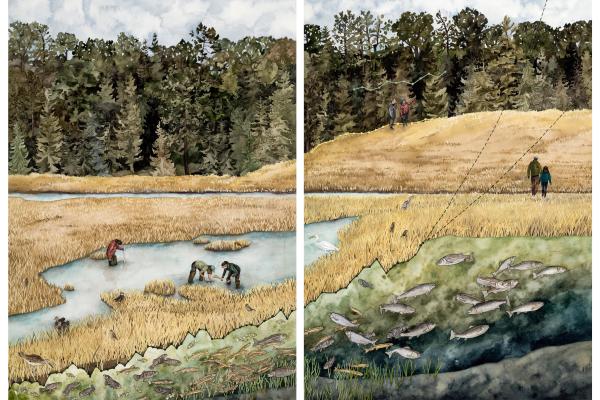NCA5 Comprehensive Report Unveils Climate Challenges, Urges Actions for Climate Resilience, Mitigation and Adaptation in the U.S.

Today marks the release of the Fifth National Climate Assessment (NCA5), a critical report that presents a clear picture of climate change's deepening impacts across the United States. It calls for urgent action to cut greenhouse gas emissions quickly and significantly. The report points out that while the U.S. has seen a decrease in emissions since 2007, there's a lot more work to be done globally to reduce emissions and step-up adaptation efforts to tackle severe climate risks in the country. The NCA5 also points to the benefits of cutting emissions fast, including better health and economic gains that are likely greater than the costs involved.
NCA5 is a comprehensive report mandated by the Global Change Research Act of 1990, requiring the U.S. Global Change Research Program (USGCRP) to submit a report every four years to Congress and the President. These reports aim to integrate, evaluate, and interpret findings related to global change. They are also tasked with analyzing the impacts of global change on various aspects of the environment and society, including agriculture, energy, health, and biodiversity, and projecting major trends for up to 100 years.
The development of NCA5 involved extensive review by experts from both within and outside the federal government and the public. An ad hoc committee from the National Academies of Sciences, Engineering, and Medicine provided an additional layer of review. The Midwest Chapter of NCA5, detailing the region's unique climate challenges, was led by State Climatologist of Ohio Aaron Wilson, assistant professor - Ag Weather and Climate Field Specialist, Department of Extension - College of Food and Agriculture and Environmental Science at The Ohio State University.
The Midwest faces significant climate-related water quality and quantity challenges, which are critical for the health of ecosystems, agricultural productivity, surface and groundwater uses, and recreation. The NCA5 projects an increase in the frequency and intensity of droughts, floods, and runoff events, particularly impacting the Mississippi River basin and the Great Lakes. These events are likely to exacerbate erosion, the proliferation of harmful algal blooms, and the spread of invasive species, thereby increasing the risks to ecosystem health and the region's water resources.
Climate change has already left its mark on the Mississippi River system, with increased precipitation variability and rapid shifts between wet and dry periods being observed and expected to intensify. Such hydrological extremes have and will continue adversely impacting ecosystems, commerce, and the seasonal dynamics crucial for regional tourism.
In response to these challenges, federal, state, and local governments and non-governmental organizations are engaging in collaborative efforts to manage the hydrological complexities brought on by climate change. For example, the Ohio River Basin Climate Change project aims to address changing streamflows and identify necessary adaptations for water quantity, quality, and management challenges. Similar initiatives are underway for the upper Mississippi River basin, reflecting a region-wide push towards resilience and preparedness.
The National Integrated Drought Information System, through its Midwest Drought Early Warning System, is working to advance drought monitoring and preparedness. Moreover, public-private partnerships are crucial in formulating best management practices to reduce nutrient and sediment runoff into waterways.
Tools like NOAA's Runoff Risk Decision Support are helping the agriculture community make informed decisions on fertilizer application, aiming to reduce the entry of chemicals into river systems and combat the environmental impacts of algal blooms and hypoxia.
As the NCA5 makes clear, proactive and coordinated adaptation strategies are vital. The Midwest, through the expertise of leaders and the collective efforts of numerous stakeholders, is mobilizing to implement innovative management practices. These practices aim to safeguard water quality and quantity and protect the region's ecosystems and the communities dependent on these precious resources.
The report serves as both a warning and a call to action, underscoring the need for immediate and sustained efforts to mitigate the multifaceted impacts of climate change.
Learn more by visiting NCA5.
See more images by visiting the USGCRP's Art X Climate Gallery
Image Credit: JILLIAN PELTO, REPLANTING RESILIENCE (DIPTYCH), (2022, WATERCOLOR AND COLORED PENCIL), learn more.
